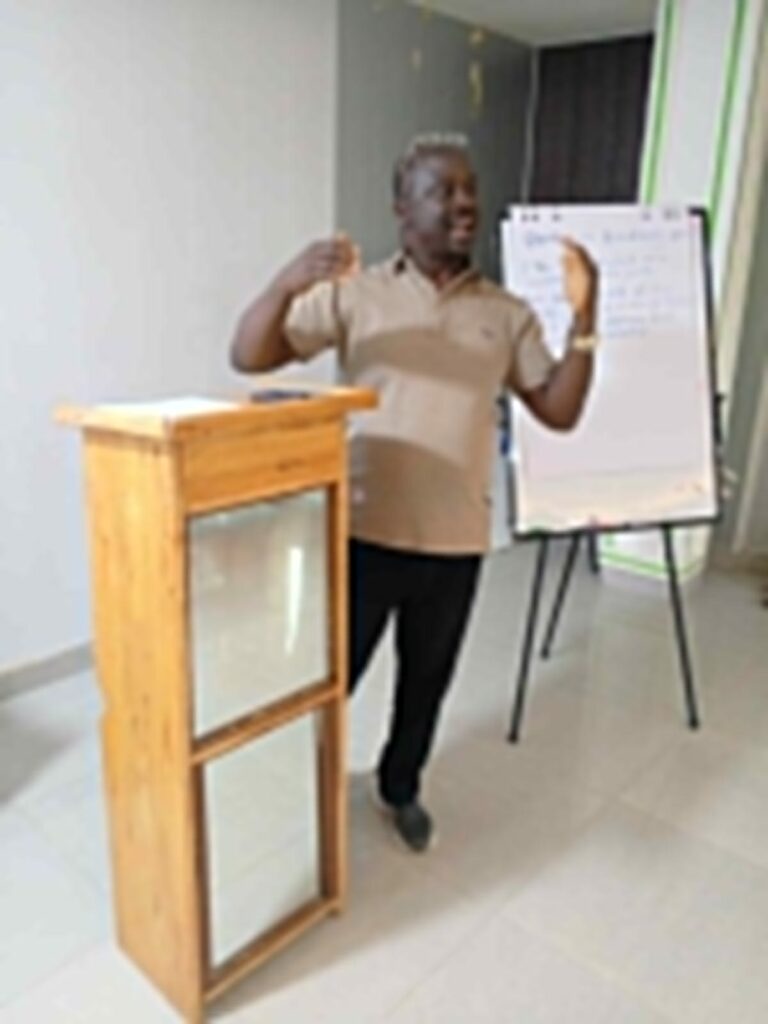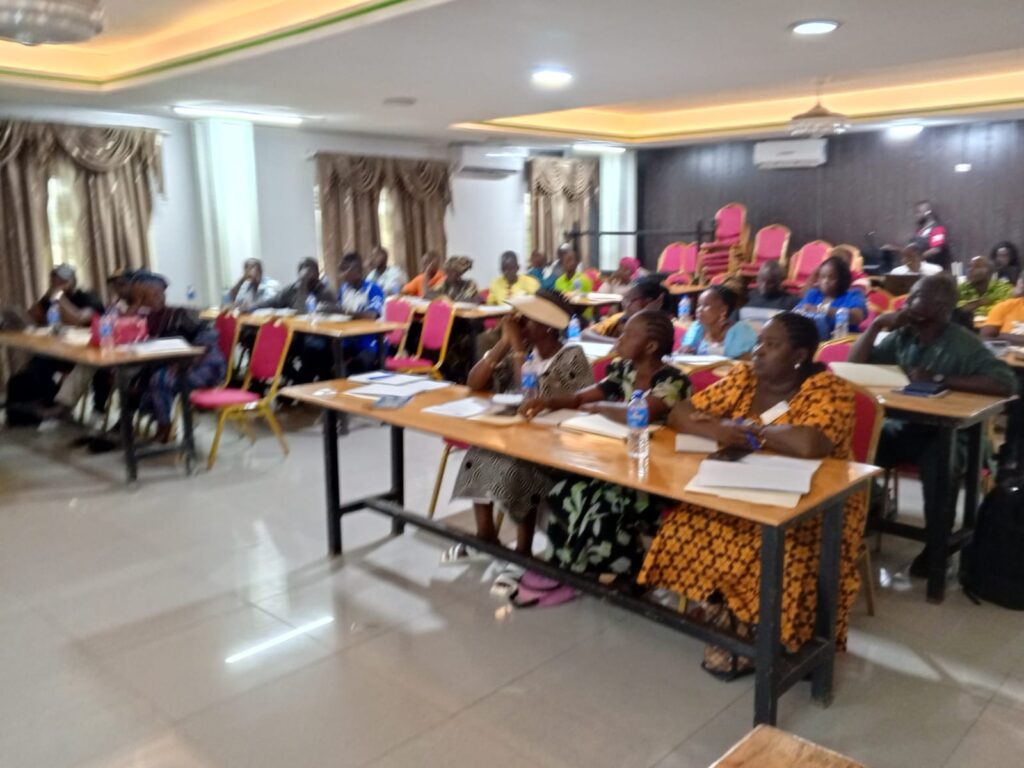By Paul M. Kanneh with the Liberia Forest Media Watch
GANTA, NIMBA COUNTY-The Heritage Partners & Associates and partners have held a one-day Legal Working Gorup Meeting on carbon law and biodiversity in Ganta, Nimba County. The meeting took place on Thursday, November 28, 2024 at Alvino Hotel. Community members from the National Union of Community Forest Management Bodies, National Union of Community Forestry Development Committee, NGO Coalition and Environmental Protection Agency (EPA, participated in the meeting.
The meeting agenda include, understanding the global biodiversity framework, carbon contracts and carbon markets, Liberian laws relating to carbon rights and contracts, purpose of the National Climate Change Steering Committee, and community priorities for carbon law and benefit sharing and the draft resolution.
Making the welcome remarks, Cllr. Tiawan Gongloe encouraged participants to pay keen attention to the various presentations so that lesson learned can be shared with the larger community members to avoid confusion. Cllr. Gongloe said it is good for people at the community level to understand the law as law means nothing when the people don’t understand it. “If community people understand the law, it will reduce confusion in the communities”, adding, “please develop interest in the workshop, because is only interest that will lead to the retention of what was learned”.
Meeting’s Lead Facilitator, Cllr T. Negbalee Warner made presentation on Liberian laws relating to carbon rights and contracts, gaps in the laws, what is needed and opportunity for civil society advocacy and engagement. Cllr. Warner revealed that only a few Liberian statues, regulations and policies that reference carbon, and this, he said, is generally more or less in passing.
He named some of Liberia’s legal and regulatory framework that deal with carbon as the constitution of Liberia, Liberian revenue code as amended in 2011, the Environment Protection and Management Law of November 26, 2002, the National Forestry Reform Law, Community Rights Law, etc. Cllr. Warner noted these laws grant communities the rights to own, conserve, and manage community land and forest including forest resources.
“Even though the law makes reference to carbon, there is no clear institutional framework with respect to a national agency leading on issue with carbon”, said Cllr. Warner.
According to him, the law legal framework on carbon is inadequate and incoherent. In particular, he said, the law makes references to carbon credits and trade, but there is yet any specify legislation, regulation or rule of the Liberian law on carbon.
To fill the gaps in the law, Cllr. Waner said, Liberia needs to engage, through a consultative process, a law or regulation defining carbon access and carbon rights, and then, the extent of transferability of carbon rights.
He proposed three options: (i) carbon rights could belong to those with user and ownership rights over land and forests, (ii) government could claim full ownership of carbon rights by treating carbon as minerals, which under the Liberian Constitution are public assets not amendable to private ownership (iii) carbon could be treated as a separate, freely alienable property right, independent of ownership of the land and forest such as that the owner of carbon rights may sell same without notice to or the consent of the owner of the land or forest.
For his part, the National Facilitator of the NGO Coalition, Mitchell Browne, Sr. presented on the six counts resolution of Civil Society and Forest and Land Community-Based Organizations on the Development of a Carbon Policy. The six counts resolution include:
1. Full inclusion of communities: That representatives of these communities be included at all level of climate change and carbon market discussions from the top to the least,
2. Development of a Carbon Market Policy: A robust national carbon market policy must precede the formulation of any proposed carbon law. This foundational document will provide a clear framework for carbon Market governance and ensure consistency in legislative processes,
3. Definition of Carbon Market and Associated Rights: Both the carbon market policy and law should explicitly define carbon, its types, ownership structures, and associated rights to eliminate ambiguity and safeguard community interests.
4. Equitable Benefit Sharing: Establish a carbon market benefit-sharing scheme that promotes gender equity, fairness, and accountability, ensuring that vulnerable groups, particularly women and marginalized communities, receive their rightful share of carbon market benefits.
5. Evaluation and inclusion of community access to Climate Financing Mechanisms: Conduct a comparative assessment of the different climate financing mechanisms including carbon credits and other climate financing schemes to determine which mechanisms provide the most sustainable and equitable benefits for local communities and stakeholders, and ensure that a mechanism (community climate finance mechanism) is established to give communities direct access to climate finances.
6. Fair Representation in Policy Development: Ensure that the process of developing the carbon market policy and law includes fair representation, with five representatives each from CSOs, and six representatives from the communities, and private sector actors participating actively in decision-making processes.

Participants’ responses
Participants, mainly community members were concerned about the contribution of urban population to reducing carbon in the atmosphere and carbon calculation. Additionally, participants recommended that national stakeholders on carbon trade consider intensive awareness of carbon policy/regulation to avoid confusion within the communities and communities should be included in the drafting of carbon regulation/policy.
The Chairperson of the National Climate Change Steering Committee (NCCSC), Elijah Whapoe revealed that the government through the EPA has developed the Term of Reference for the drafting of the carbon policy, which, he said, will be published soon.



